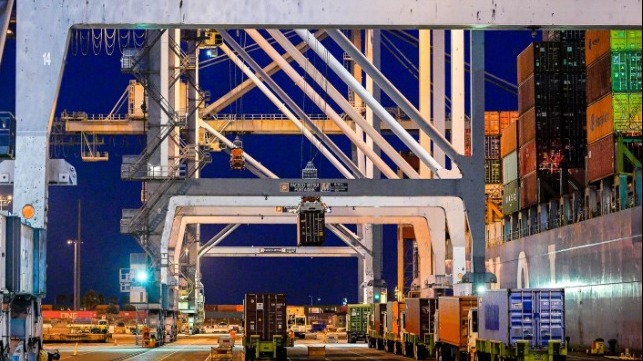U.S. and China Reach "Phase One" Partial Trade Deal

The Trump administration announced Friday that it has secured a partial deal with Chinese negotiators to put a pause on the escalating transpacific trade war.
The initial deal includes agreements on intellectual property, financial services, and a purchase of $40-$50 billion in American agricultural products. It also includes new limits on the extent to which China can manipulate its currency to seek advantage in export markets. "We've come to a very substantial phase one deal," President Donald Trump said in an Oval Office briefing.
In return, the administration will hold off on a plan to raise tariffs on $250 billion in Chinese goods by an additional five percentage points on October 15. A separate round of increases on consumer products is still scheduled for December 15, pending another announcement.
A phased, "narrow" deal was the preference of Chinese negotiators, who signaled before talks began this week that a large-scale agreement was not on the table. Other major U.S. priorities - like limiting China's government subsidies for key industries - will wait for a second (or even third) phase of agreements.
Detailed negotiations continue on the specific language of the "phase one" deal, and Trump said that it could take four to five weeks to complete. If all is concluded as planned, it would be available for Trump and Chinese President Xi Jinping to sign at a summit of foreign leaders in Santiago, Chile next month, according to the New York Times.
The deal on agricultural commodities could have a major impact for farm interests, and soybean and corn futures soared Friday after the White House broke the news. China is a critical market for American soy farmers, and over the course of the year-long trade war, Chinese buyers have sharply curtailed purchasing of U.S. agricultural products due to retaliatory Chinese government tariffs.
